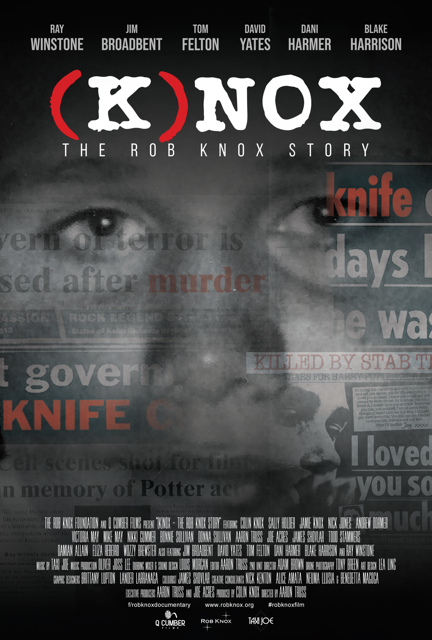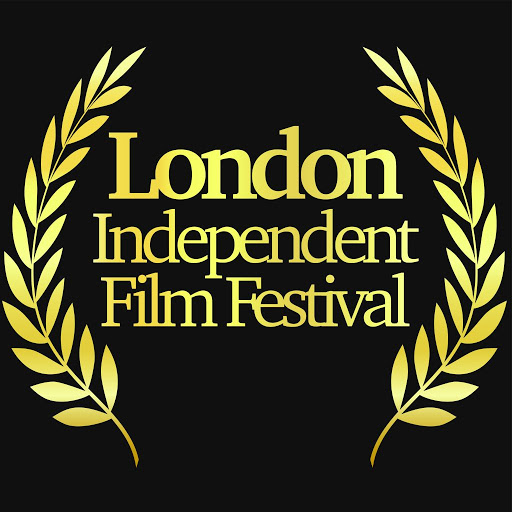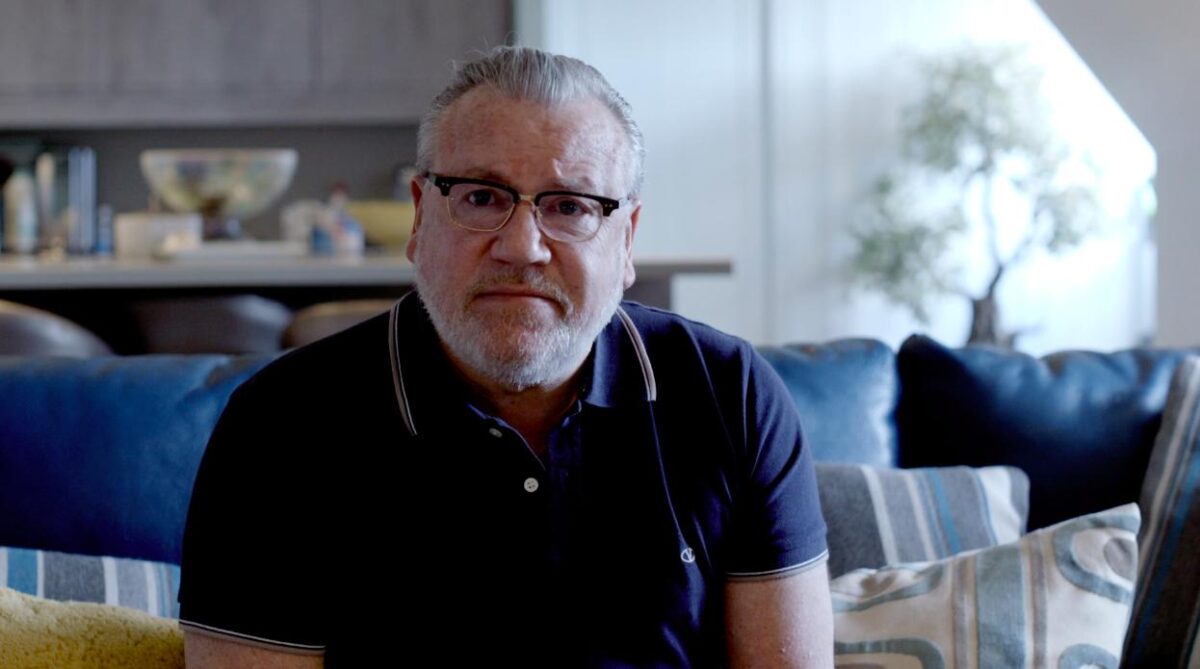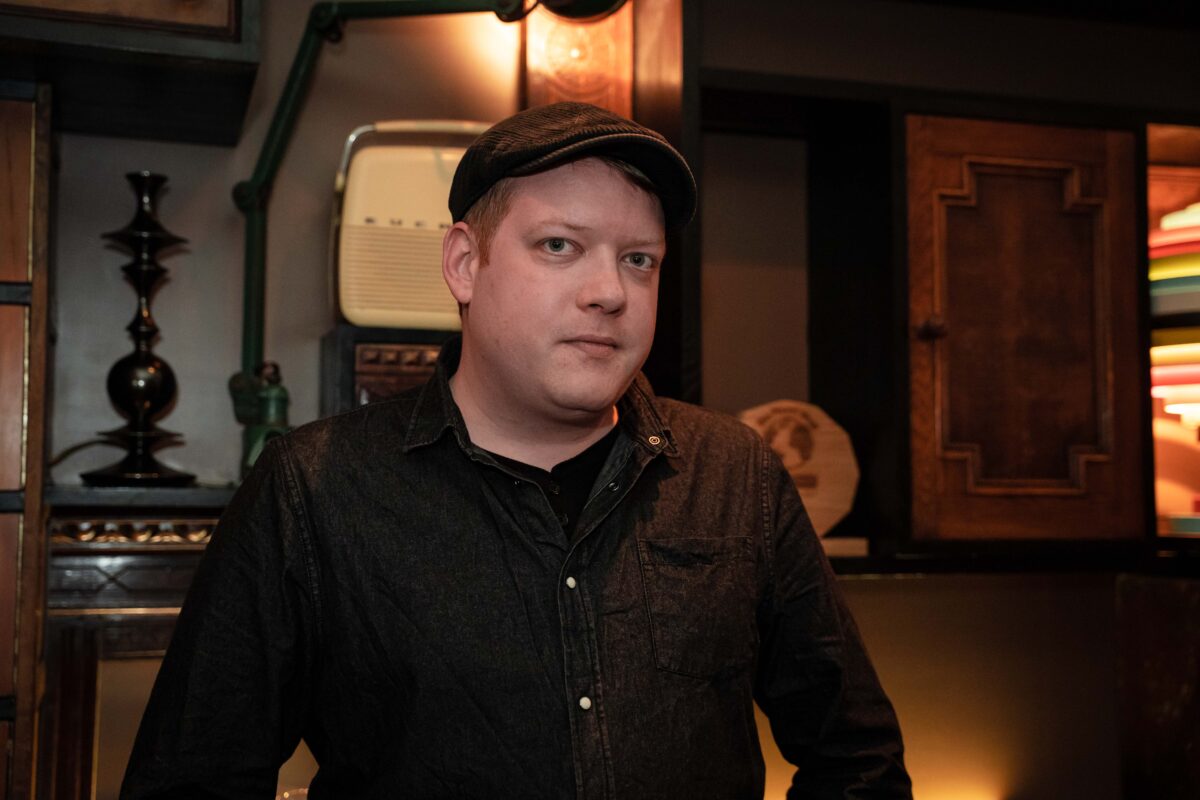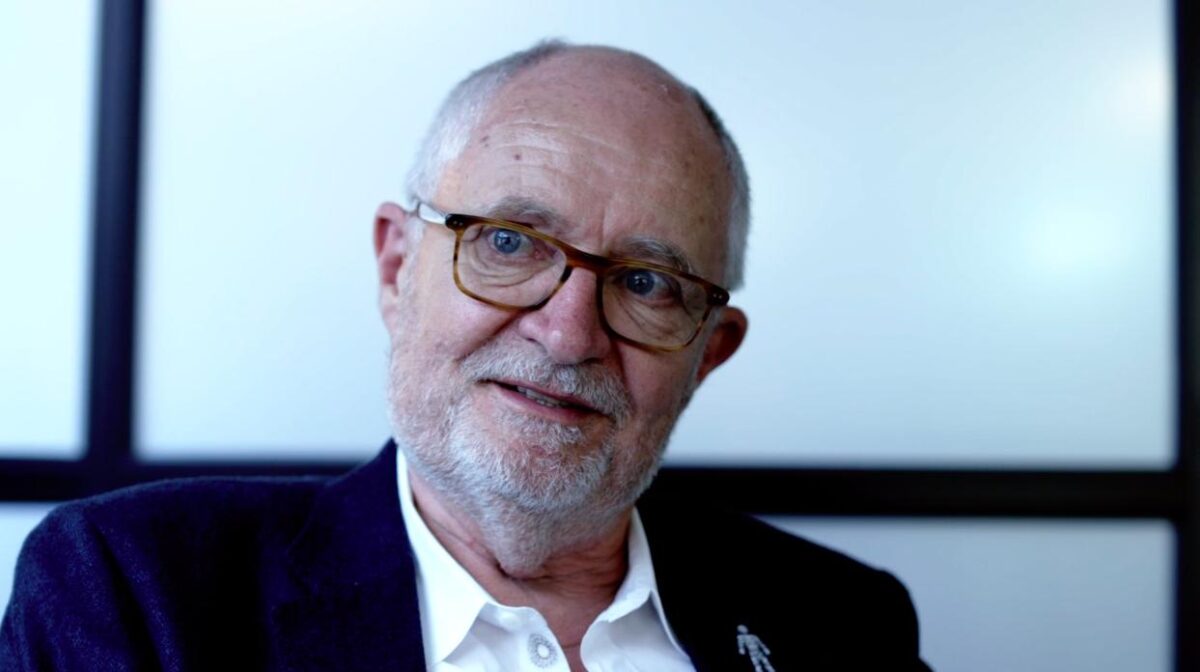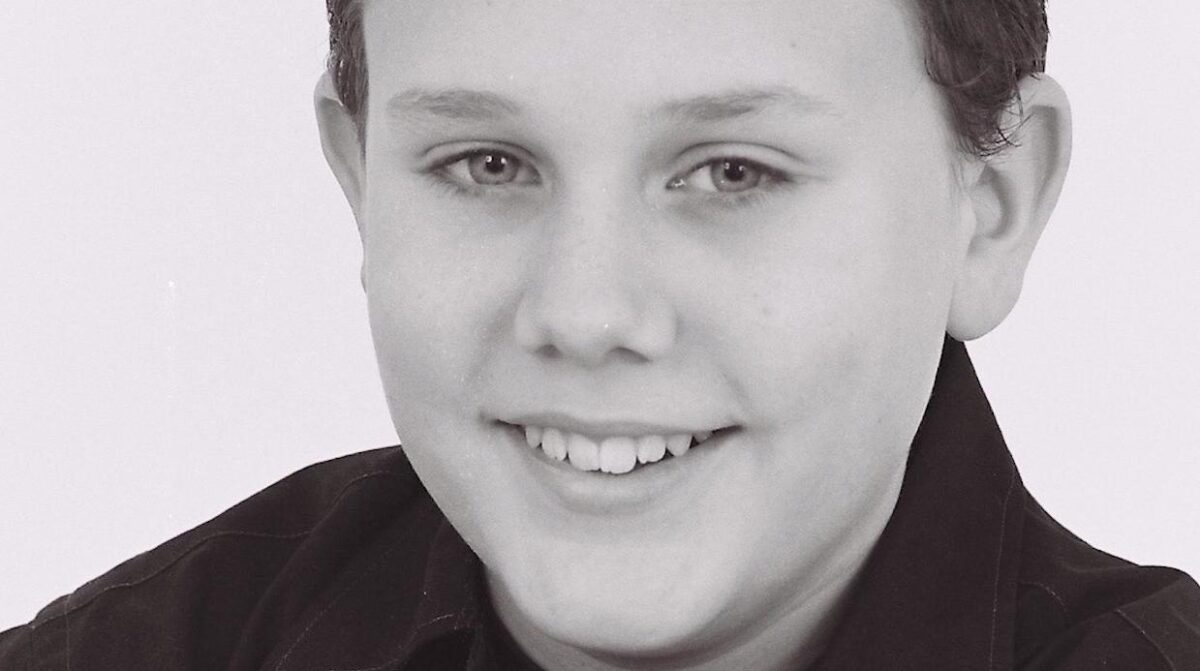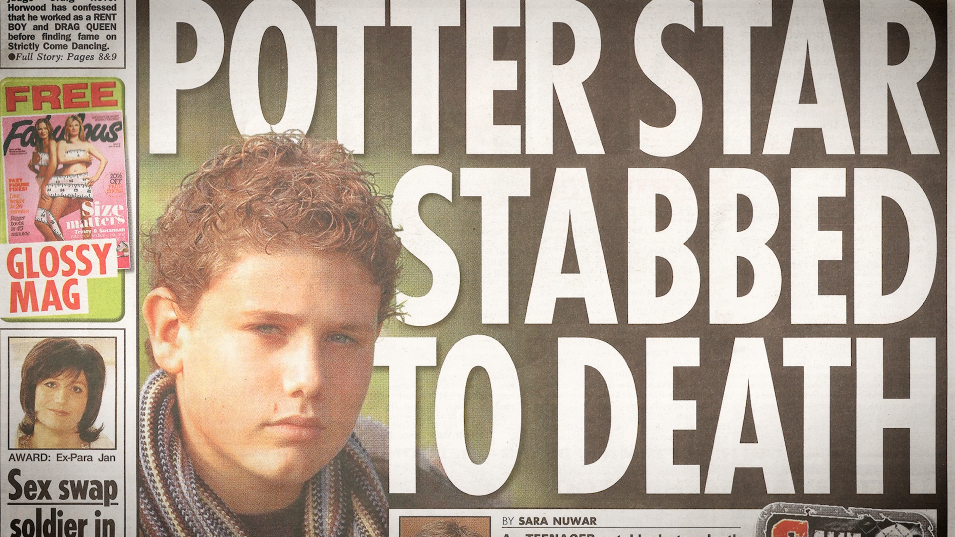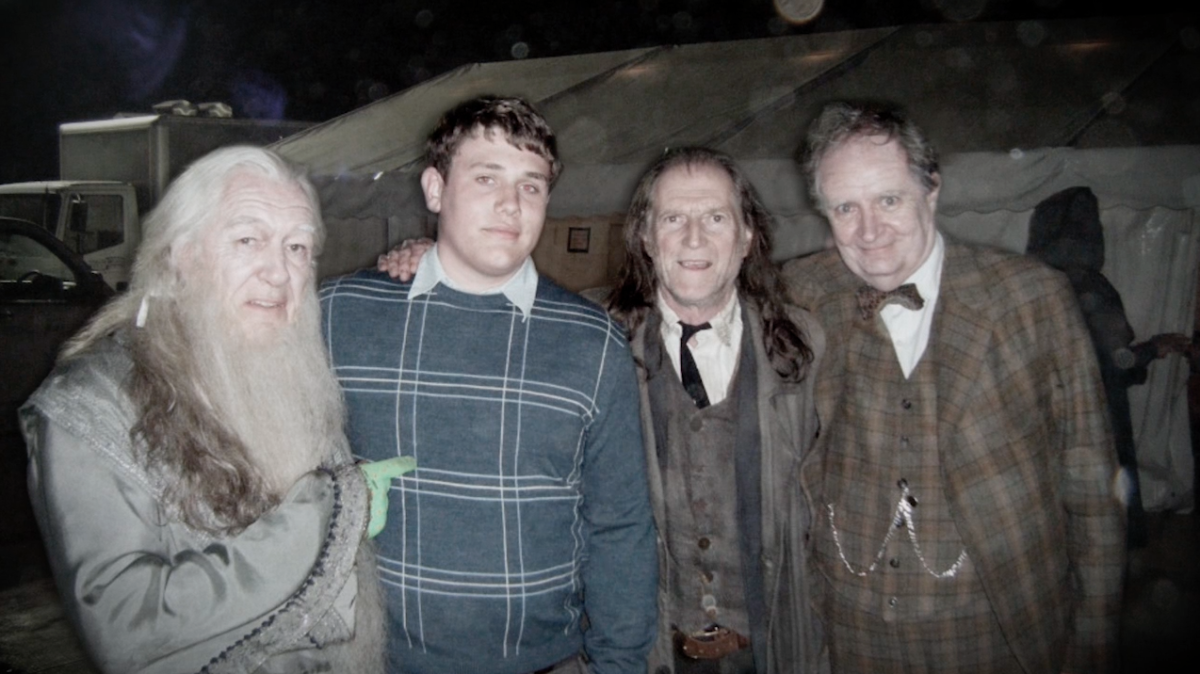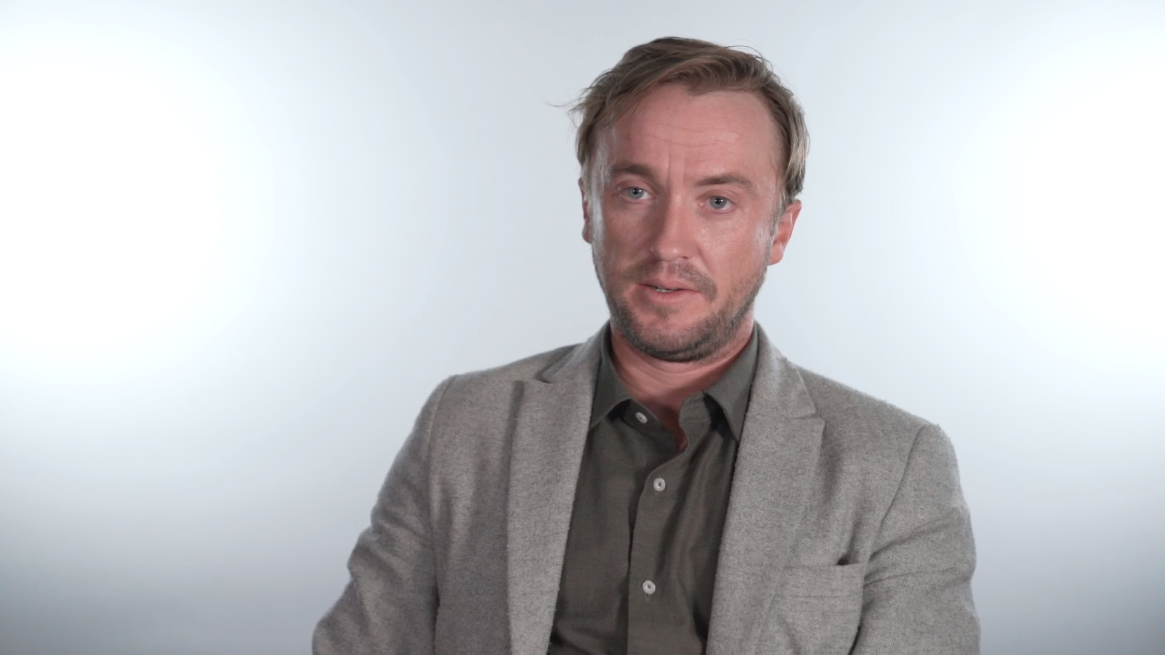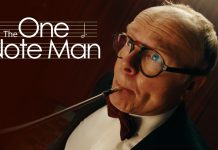It is one of the most tragic events of recent years – the death of an actor who had already made some headway through an appearance in one of the most successful movie franchises of all time in a street incident.
Now, the circumstances and backstory of the tragedy have been realised in Aaron Truss’ new documentary (K)NOX – THE ROB KNOX STORY, a film that highlights the consequence of knife crime.
A deeply personal project, Aaron shared his thoughts on the film with Film And TV Now.
(K)NOX – THE ROB KNOX STORY plays as part of the online London Independent Film Festival 2021.
Tickets available at:
FILM AND TV NOW: How familiar were you with the Rob Knox story before committing to the documentary?
AARON TRUSS: Rob and I were childhood friends, we both attended D&B Theatre school and trained to be young actors.
I eventually moved into film making at University, it was there that I made a number of short film projects with Rob (Employee of the Dead being one of them, which is featured in the documentary). When Rob was murdered, my whole life was turned upside down and I lost a huge part of myself, something that I’m still dealing with today.
In 2018, Colin (Rob’s father), approached me with a documentary project about Rob that was in the works and it seemed to be going nowhere. At the time, I had directed several music videos and had been the Lead editor on some behind-the-scenes featurettes for various commercial titles.
I think I pretty much begged Colin to give me a shot at directing the film, I knew in my mind what I wanted to see and how to execute the project – also at this time, knife crime in the UK was steadily on the rise and I wanted to do my part to help raise awareness.
FTVN: In terms of coordinating the content, how closely did you work with the family’s own viewpoints and reflections?
AT: Working with the family was key to telling Rob’s story.
Colin for example has very strong viewpoints on what should be done regarding prevention, rather than justice – and I agree with him. What was most important to me was to personify my friend as best I could, the way most people and I knew him. Rob is our protagonist as much as the victim.
To do this, I had to work with the family as much as I could, from interviews with Colin, Sally (Rob’s mother), Jamie (Rob’s brother, who was also present the night Rob was killed) and even Mike and Victoria May (Rob’s cousins). The film only works if the audience feels a connection to Rob as a human being and not a statistic.
FTVN: How long was your first cut of the film?
AT: So in the latter part of 2019, I had to turn in a rough edit to show David Yates. This ended up being in the ballpark of 1 hour and 50 minutes. That’s a long film.
Luckily, due to my connection with Rob and the subject matter, I brought on board three creative consultants (Alice Amata, Neuma Llusia and Benedetta Magoga) who really helped shape the early renditions of the edit. Moving into 2020, we welcomed Nick Kenton to the team as a producer (due to his background in true crime for television) who was absolutely brutal with me – and I needed that!
We ended up stripping away a lot of elements that held the documentary back and focused on giving the edit more punch. I’m sure we’ll release these cut scenes and interviews as socials down the line.
FTVN: How long did it take to shoot?
AT: A handful of interviews had been shot already prior to my involvement, some I wanted to keep and others I wanted to re shoot. I began shooting various B-Roll shots for the film at Christmas 2018 and began fresh interviews in 2019, starting with Ray Winstone. I believe we wrapped in the summer of 2020 with our last interview, Tom Felton.
FTVN: Tell us about your production team.
AT: We have the most incredible production team on this film, the documentary couldn’t be in safer hands. Everyone who came on board from picture, to sound and post, came on board due to the subject matter – despite not knowing Rob personally. I found most people who wanted to join our team did so because they have children themselves.
Coming from a post-production background, I knew how important it was to have the best team in place. From our dubbing mixer and sound designer, Louis Morgan, to our graphic designers, Britt Lupton and Lander Larranaga, they’ve all given their best! Our colour grader, James Shovlar was working on the set of Peaky Blinders – whilst grading the documentary in his downtime.
The whole vehicle was a well-oiled machine that was running 24/7. I also want to shout out to Joe Acres, Nick Jones, Oliver Joss Lee, Devid Dell’Aiera, Taxi Joe, Adam Brown, Lea Ling, St Mary’s Hospital in Sidcup, Lives Not Knives, the Midi Music Company and Tony Breen at Eagle Drones – we wouldn’t be here without their hard work.
FTVN: Were there any legal challenges that you faced when putting it together?
AT: I’m not going to lie, there was always some red tape. Look, you’re trying to make a documentary about someone who appeared in the Harry Potter – so obviously you’re going to want to show that. And that means knocking on Warner Bros’ door and seeing what happens…
Harry Potter aside, we did try to secure an interview with the Mayor of London, Sadiq Khan, simply to talk about the state of knife crime in London specifically. After a few months of negotiations, we were turned down and were offered the deputy Mayor for policing and crime, Sophie Linden.
FTVN: Tell us about how you managed to secure the footage from the behind the scenes on the HARRY POTTER films.
AT: After Rob’s departure, David Heyman and David Yates kindly presented Rob’s parents with a DVD containing footage of Rob as Marcus Belby.
This included bloopers and scenes that featured Rob. Once I got hold of this footage, I knew it was integral not only to Rob’s story, but also to show audiences what Rob did for a living, his process as an actor – especially working with key members of the cast.
Rob had also filmed a lot of shenanigans off set too with his own camera, footage that hadn’t seen the light of day until Jamie (Rob’s brother) sent it to me.
FTVN: How did you raise finance for the documentary?
AT: Working in post for years, I knew from a technical standpoint how to achieve and execute what I wanted without spending thousands of pounds.
Everyone involved on this project is working on it for free, from Jim Broadbent to the art department. Everyone has stepped up and assembled to be a part of something more than a film. A movement.
Everything else has been down to Colin, he’s the bank – and it’s my job to make sure we don’t break the bank.
FTVN: What has been the family’s overall reaction to the documentary?
AT: I was more nervous showing Rob’s family the documentary more than anything else!
This happened over a series of screenings and I have never been so nervous in my life. Colin has seen every edit of the film, every week there would be something new to show him and there would be laughter, tears, alcohol etc. Listening to my friend’s father and his reaction to key moments in the film was an indicator of whether or not I was doing the right thing.
I showed Jamie and Sally separately, simply out of respect. I didn’t want a room full of people waiting to see how either Jamie or Sally reacted to the film, especially to the night Rob was killed. I was also able to sit with Rob’s cousin Mike, who was very emotional during the screening.
It makes you feel like absolute shit to be honest. It feels like I’m dragging Rob’s family and friends through that night all over again – but it was so important to include them at every stage. I hope that Rob’s family and friends are proud of what we have accomplished, getting Rob’s legacy into the world and educating people about knife crime has always been the goal.
FTVN: Are there any other real-life subjects you would like to focus on in this context?
AT: This whole process has been an eye opener, especially with the funding of our emergency services. Before the pandemic, I had hoped to work with Brian May and Anne Brummer at the ‘Save Me Trust’.
The project would be looking into the state of our fire services in Britain, something close to my heart, as my granddad was a fire fighter. But we’ll have to wait and see…
FTVN: Going forward, do you see yourself as a documentarian or a narrative film-maker?
AT: Both. I loved the whole process of documentary film-making but I don’t want to chain myself to being just a documentarian.
I recently finished production on a short horror-comedy called ‘The Understudy’ with the help of Joe Acres, James Shovlar and Todd Stammers – all three appeared in ‘Employee of the Dead’ with Rob all those years ago. It was almost like having the old gang back together again, we even featured sound clips of Rob in the film – we felt if he were still around, he would still be making films with us.
Link to ‘The Understudy’: https://youtu.be/r-ieNLF0TME
FTVN: How has the pandemic affected your development and evolution as a film-maker?
AT: Well, I was afforded more time to work on the documentary and a short film without tight deadlines. A lot of my friends in the industry have been struggling with finding work, especially freelancers so I count myself as one of the lucky ones.
I’ve probably learnt more about production in lock-down, the process of distribution, acquisitions, marketing and social media – something very new to me. Almost everyone is always free for a phone call or a zoom chat if I need advice on anything!
FTVN: Finally, what are you most proud of about the film?
AT: That Rob’s story has been told in the most honest way possible. Rob’s story should have been the focus of a documentary years ago and I’m proud as his friend to be bringing that to life.


